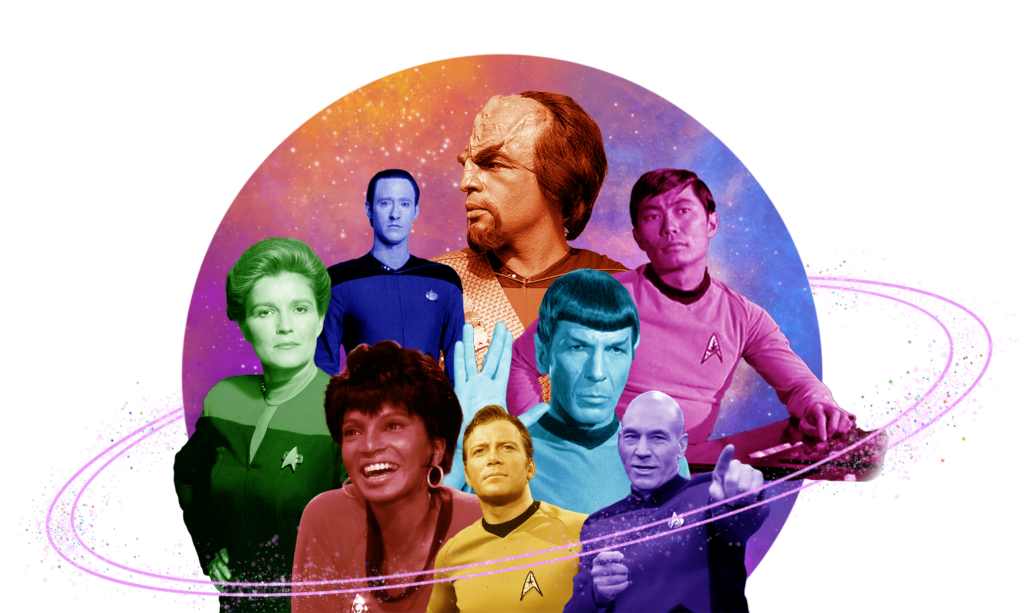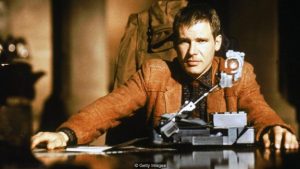“Space: the final frontier. These are the voyages of the starship Enterprise. Its continuing mission: to explore strange new worlds. To seek out new life and new civilizations. To boldly go where no one has gone before!”
After about the fifth time my parents laughed at a reference in a movie and brushed it off as “oh it’s a reference to Star Trek,” I demanded they introduce me to the iconic show. My mom picked out her favorite episode in the Original Series, “The Trouble with Tribbles” and I was hooked. Nine years later and I’m taking a Science Fiction class as a senior in college all because of those pesky tribbles. I may not know how to speak Klingon or have a cosplay costume ready to go in my closet, but I have come to the conclusion, alongside many others, that Star Trek is the greatest science fiction franchise of all time. It continues to stand the test of time with the current Star Trek canon including eleven TV series (with more on the way) and thirteen feature films. But why is it so great?
Star Trek, to its core, embodies hope. It’s had a purposeful mission from the beginning, not only to boldly go where no one has gone before, but to show viewers that the future can be good. It portrays an optimistic vision of humanities future where the defining characteristic of humans are our curiosity. In this vision, humans are dedicated to science and exploration, of both space and themselves. Star Trek imagines an Earth without war, poverty, or pollution where technology works FOR us rather than against us. The current geopolitical tensions that rule our world’s governments are described as petty squabbles that have been solved and left behind in humanities’ dark past. Star Trek shows how peace and discussion are far more interesting than war and violence. Differences are respected and actively depicted as good. Gene Roddenberry, the creator of Star Trek was invested in showing how humanities strength lies in our differences.
Star Trek has embraced diversity from the beginning, not only in the stories but in casting. In the Original Series, Nichelle Nichol’s Uhura and George Takei’s Sulu were main officers on the bridge. As the first black woman in a position of respect and power on an American television series, Uhura was unprecedented in 1966. Famous endorsements of Uhura came from Martin Luther King Jr. encouraging Nichols to continue playing the role after the first season and Whoopi Goldberg who was inspired as a nine-year-old watching the show for the first time. Ahead of its time, the 1968 kiss between the Uhura and Kirk is, among much debate, often cited as the first interracial kiss on television. Star Trek: Deep Space Nine put a black man in charge through Avery Brooke’s Sisko and the next series Star Trek: Voyager has Kate Mulgrew’s Janeway as a female captain of the crew.
The franchise came into itself on television in a time where special effects were limited and so although most of Star Trek is in space, it devotes itself to talk over action. While the more recent series and films can take advantage of incredible special effects to give viewers the space battles and martial arts scenes we want, at its core the focus is still on asking big questions. Each episode and movie explore different philosophical issues. What does it mean to be human, Klingon, Vulcan, non-corporeal, immortal or an android? With many hours to explore ideas and questions, Star Trek tackles a wide variety of themes and tells many different types of stories such as mysteries, romances, horror stories, spy stories, workplace drama, family stories, and so many more. Many episodes explore emotions. What are they, when or how do we give into them, repress them, or make use of them? Vulcans repress them through their pursuit of pure logical thinking, while Data, a perfectly logical android seeks to be more human and emotional like his friends. Star Trek: The Next Generation has two regular characters who function as therapists for the crew, Deanna Troi as ship counselor and Whoopi Goldberg’s Guinan as the wise and ageless bartender.
Something that always stood out to me was how the characters of the show are “cool” because they are intelligent and good at what they do, not because of wealth or looks. They are curious and ask questions, determined and passionate about what they do. In their pursuit of interplanetary goodwill and space exploration, they unapologetically ask “why?” and “what if?” As the resident Trekkie of the class, I wanted to share why I love it and continue to go back to it. Star Trek embraces the awe and wonder of the universe that is at the core of what science fiction means to me.
** If you want to get into the franchise but don’t want to watch eleven series and thirteen films, I recommend watching the recent trilogy that features a younger version of the original crew in a different timeline! The cinematography, special effects and music is stunning! (Star Trek, Star Trek: Into Darkness, and Star Trek: Beyond)
Sources/ inspiration for this post:
Roddenberry, Gene. Star Trek. 1966-present.
Lloyd, Robert. “’Star Trek’ Is the Greatest Sci-Fi Franchise of All. Why It’s Stood the Test of Time.” Los Angeles Times, Los Angeles Times, 28 Oct. 2021.






